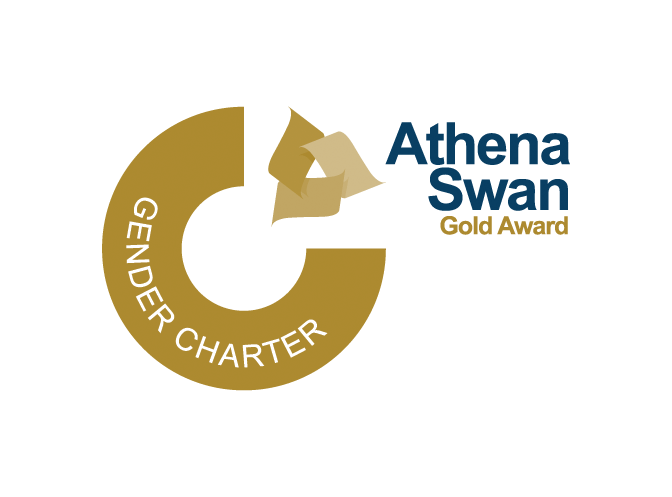LGBT+ role models
Dr Carol Sparling (she/her or they/them)

I am currently Director of the Sea Mammal Research Unit and I have a long association with the School of Biology, having carried out my PhD here in 1998-2003. Prior to taking up the role as SMRU Director I worked for SMRU Consulting for ten years, a wholly owned subsidiary company of the University. Before that I spent a few years tramping around the highlands of Scotland whilst working as an ecologist. I am also a born and bred Fifer, growing up in Dunfermline only an hour’s drive away from here.
I believe that in order for people to do their best work they need to be able to be their authentic selves. I am a massive supporter of diversity, equity, inclusion and visibility in the research community and in positions of leadership. I wasn’t out when I started my PhD here and I certainly wasn’t aware at the time of any LGBT+ staff in the School. I came out halfway through my PhD when I met my now civil partner in 2001.
I am the LGBT+ Advocate for the School of Biology and I co-ordinate the LGBT+ subgroup, a group of passionate and committed individuals working hard to create an environment that is inclusive and diverse.
Prof Nathan Bailey

I am an evolutionary biologist studying social behaviour and adaptation genomics – and incoming Director of the School of Biology’s Equality, Diversity and Inclusion group. I have always been fascinated by the diversity of life on Earth, so the role feels like a natural fit. I even study the evolution of same-sex sexual behaviour in animals as part of my research programme.
I received my PhD from St Andrews in 2006 then lived and worked in California before returning in 2010 with my now husband. My approach for trying to improve conditions and secure rights for the LGBT+ community has changed with my life stage and career. It was very rewarding to drive positive change for the LGBT+ community through activism as an undergraduate student, and now I am enthusiastic about working with the University to achieve needed gains for underrepresented groups of students and staff.The nature of challenges facing the LGBT+ community have changed over time and vary from place to place. My husband and I recently wrote an article about adopting as a gay, mixed-ethnicity academic couple, and it is clear to me that students, researchers, and employees thrive best when in an inclusive and supportive environment.
Mx Thomas Green (they/them or he/him)

I am a PhD student in the Centre for Biological Diversity (CBD), studying the evolution of same-sex sexual behaviour. Before St. Andrews, I did my undergraduate degree in zoology at Trinity College in Dublin. I have been in St. Andrews for just over a year now and have become active in the community by demonstrating in a number of undergraduate labs and taking up a role on the Biology Equality Diversity and Inclusion committee as the postgraduate representative. I have worked specifically towards discussions surrounding accessibility in the School of Biology as well as inequalities caused by certain student visas.
I have been out in varying ways since I was thirteen years old and have actually managed to identify as all the letters of LGBTQ (but now I’m just a QT). One of the key things that has been made clear to me about queerness over the past decade has been that intersectionality is incredibly important, not only in terms of progress but also for forming a community.
Margo Case
Hi, I’m Margo, a 3rd year Marine Biology student and I identify as queer in both my gender and sexuality. For me, inclusion comes from a place of safety and openness. When there is fear of being rejected, isolated or targeted, it stops LGBT+ individuals from putting themselves forward for opportunities or actively participating in work settings. Fear holds us back, but it is cultivated by the society around us. Cultivating a safe space for them within our various Schools will cascade into confidence, engagement and will let those people know that we not only accept them, but want them in our teams and in our groups.

I myself have purposefully dressed less “queer”, hiding my identity of which I’m so proud because I believe it will make people take me more seriously and will prevent bias, negative views and incorrect assumptions from affecting my work and my opportunities. This is a belief born from fear, but I find that as I get to know my tutors, classmates and School better, I can be more myself. Which is why I think it should be very explicitly stated the support the university has for LGBT+ students, and the measures of protection they have when reporting or confronting homophobia, transphobia or general discrimination. Particularly support and protection for trans individuals who suffer greater discrimination than other parts of the LGBT+ community and are most at risk of exclusion.
Moreover, increased visibility of queer people in work and study will encourage others to put themselves forward, as seeing yourself reflected in those spaces immediately lets you know that there is a place for you there. That you will not only be accepted but welcomed and that success is something attainable and it is the same success afforded to those outside their community who possess greater privilege. That has to be present at every level: undergraduate, postgraduate, research positions and staff. At every level, there is someone waiting for someone to look up to and be inspired by.
